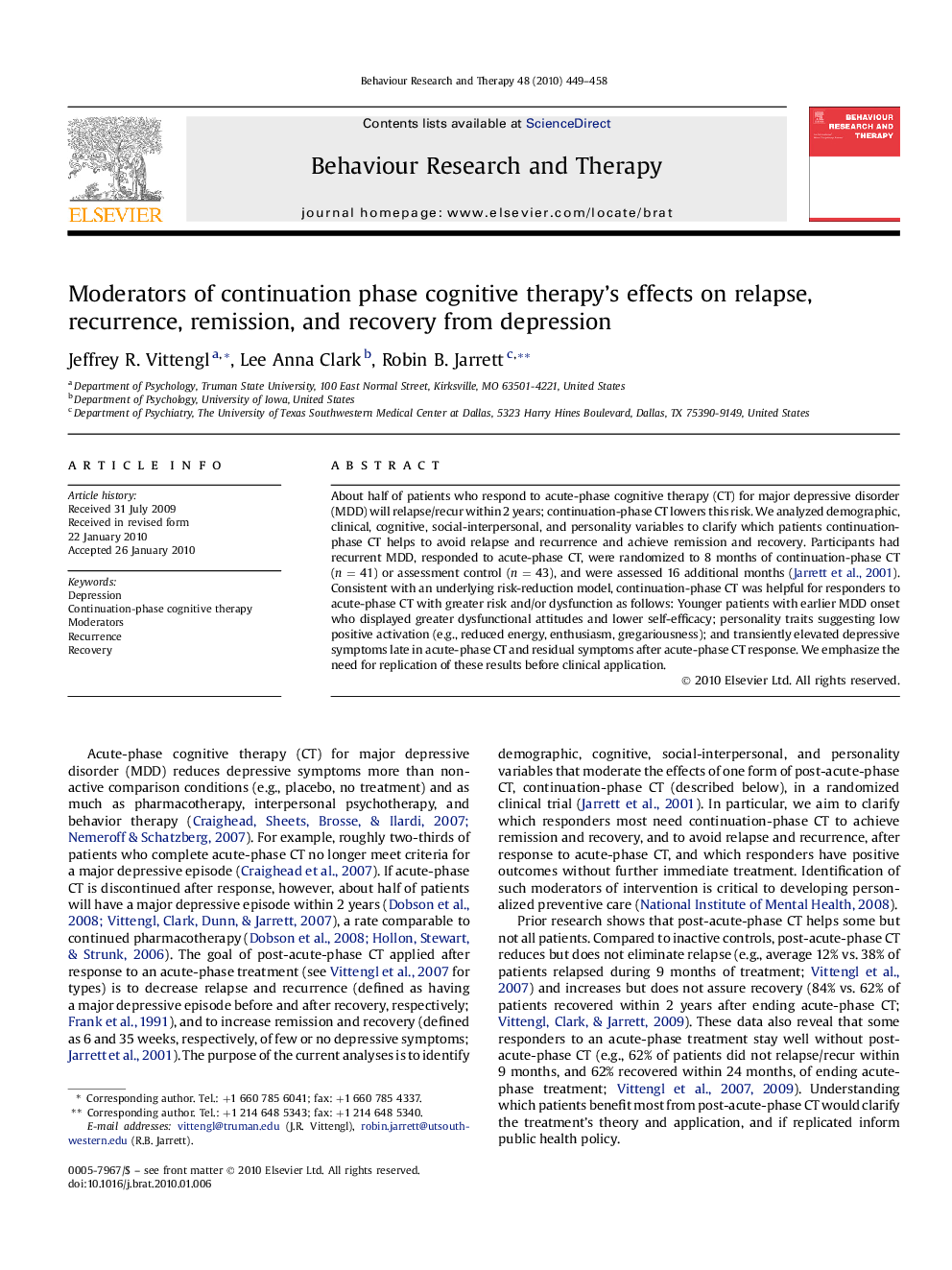| Article ID | Journal | Published Year | Pages | File Type |
|---|---|---|---|---|
| 902125 | Behaviour Research and Therapy | 2010 | 10 Pages |
About half of patients who respond to acute-phase cognitive therapy (CT) for major depressive disorder (MDD) will relapse/recur within 2 years; continuation-phase CT lowers this risk. We analyzed demographic, clinical, cognitive, social-interpersonal, and personality variables to clarify which patients continuation-phase CT helps to avoid relapse and recurrence and achieve remission and recovery. Participants had recurrent MDD, responded to acute-phase CT, were randomized to 8 months of continuation-phase CT (n = 41) or assessment control (n = 43), and were assessed 16 additional months ( Jarrett et al., 2001). Consistent with an underlying risk-reduction model, continuation-phase CT was helpful for responders to acute-phase CT with greater risk and/or dysfunction as follows: Younger patients with earlier MDD onset who displayed greater dysfunctional attitudes and lower self-efficacy; personality traits suggesting low positive activation (e.g., reduced energy, enthusiasm, gregariousness); and transiently elevated depressive symptoms late in acute-phase CT and residual symptoms after acute-phase CT response. We emphasize the need for replication of these results before clinical application.
